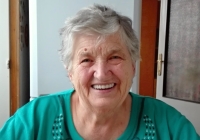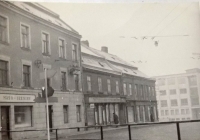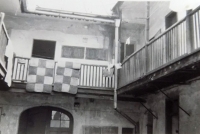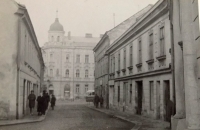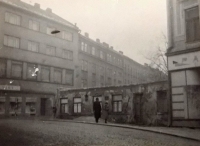I took primarily the doll
Download image
Věra Kulhavá, née Křepínská, was born on 10 October 1936 in Jihlava. Her mother was German and her father Czech. In 1945, Věra and her mother were included in the deportation and together with other Germans they were placed in a factory in Helenín. The father managed to get his daughter back and eventually, after a few months, the mother was able to return as well. In the meantime, their flat was completely ransacked. However, a large part of the witness´s family joined the deportation to Germany.

